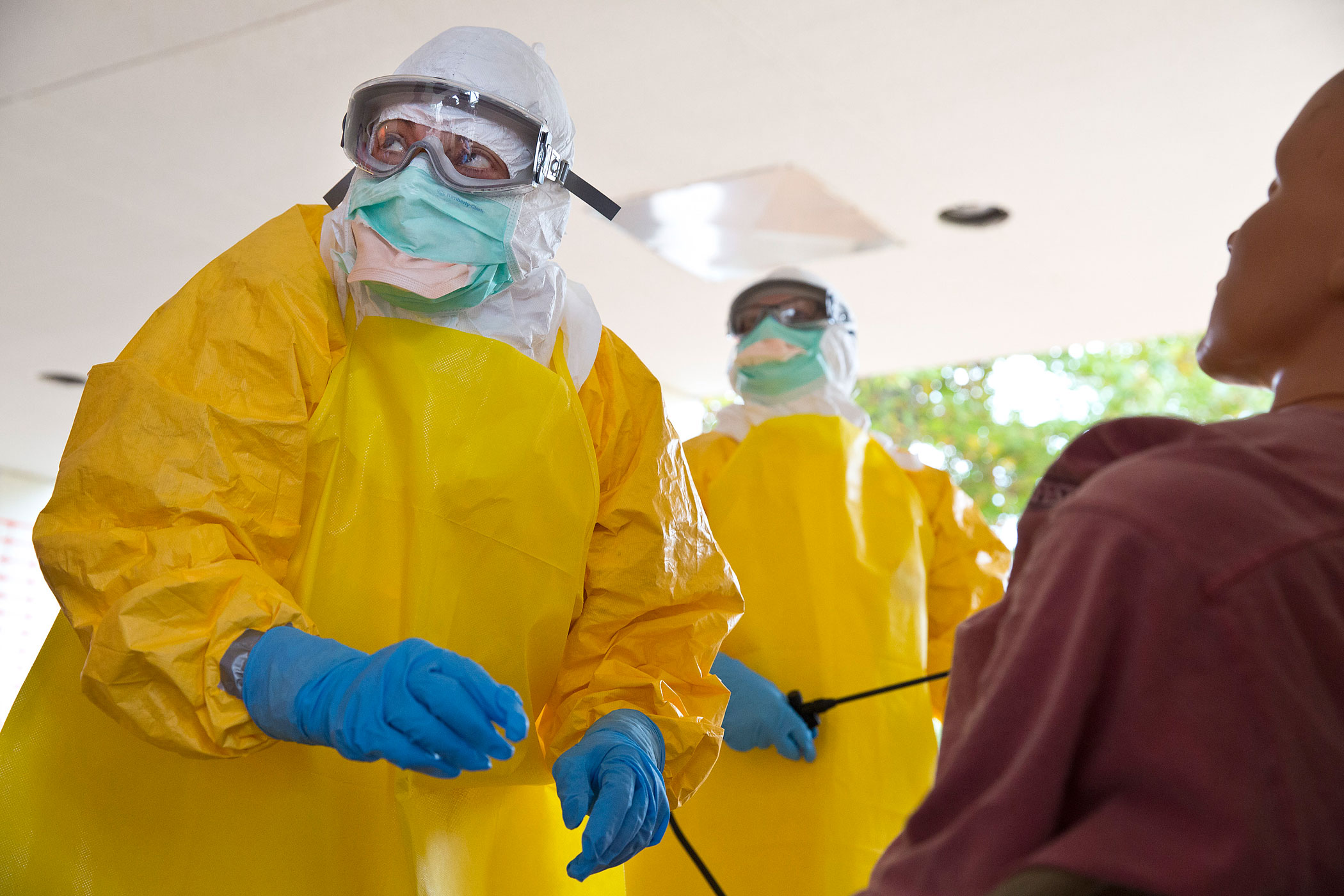
Health care workers treating Ebola patients must now wear full-body coverage suits with no skin showing and must undergo significant training prior to treating patients, U.S. health officials said Monday.
“We may never know exactly how [the Dallas infections happened], but the bottom line is the guidelines didn’t work for that hospital,” Dr. Tom Frieden, director of the Centers for Disease Control and Prevention (CDC), said during a news conference announcing the new guidelines for caring for Ebola patients and wearing personal protective equipment (PPE). Prior to the three Ebola infections in Dallas, including two health care workers, the CDC did not recommend full body coverage for Ebola, but instead recommended at least gloves, a gown, eye protection and a face mask. That has changed, in light of the two health care worker infections at Texas Health Presbyterian Hospital.
The new guidelines have three additions:
1. Prior to working with Ebola patients, health care workers must be repeatedly trained and demonstrate competency in treating a patient with Ebola, especially putting on and taking off PPE. “Facilities need to ensure all healthcare providers practice numerous times to make sure they understand how to appropriately use the equipment,” the CDC said in a statement.
2. When wearing PPE, no skin can be exposed. The CDC is providing two options for the PPEs, since the University of Nebraska Medical Center and Emory University Hospital, which have both successfully treated Ebola patients, use different versions. Googles are no longer recommended. The recommendations for PPE are now the following:
3. Every step of putting on and taking off PPE must be supervised by a trained observer. There should also be designated areas for where PPE are taken on and off.
“It’s hard to care for Ebola, so every aspect… needs to be overseen,” said Frieden in the press conference, adding that hospitals should limit personnel in health care rooms and should limit procedures to only those that are essential.
The CDC is increasing health care worker training across the country as well as sending out training videos, but Frieden argues that there is no alternative for hands-on training, especially taking on and off PPEs. “We agree with the concern of health care workers,” said Frieden citing anxiety from health care workers nationwide that they felt unprepared for treating patients with Ebola. The new recommendations will be effective immediately, though the CDC does not have the regulatory authority to make hospitals follow the guidelines, Frieden said. The recommendations should be available online later Monday evening.
Earlier on Monday, a Dallas County Judge confirmed that 43 of 48 contacts of Thomas Eric Duncan were considered no longer at risk after the 21-day incubation period passed, and Nigeria was declared Ebola-free.
More Must-Reads from TIME
- Donald Trump Is TIME's 2024 Person of the Year
- Why We Chose Trump as Person of the Year
- Is Intermittent Fasting Good or Bad for You?
- The 100 Must-Read Books of 2024
- The 20 Best Christmas TV Episodes
- Column: If Optimism Feels Ridiculous Now, Try Hope
- The Future of Climate Action Is Trade Policy
- Merle Bombardieri Is Helping People Make the Baby Decision
Contact us at letters@time.com